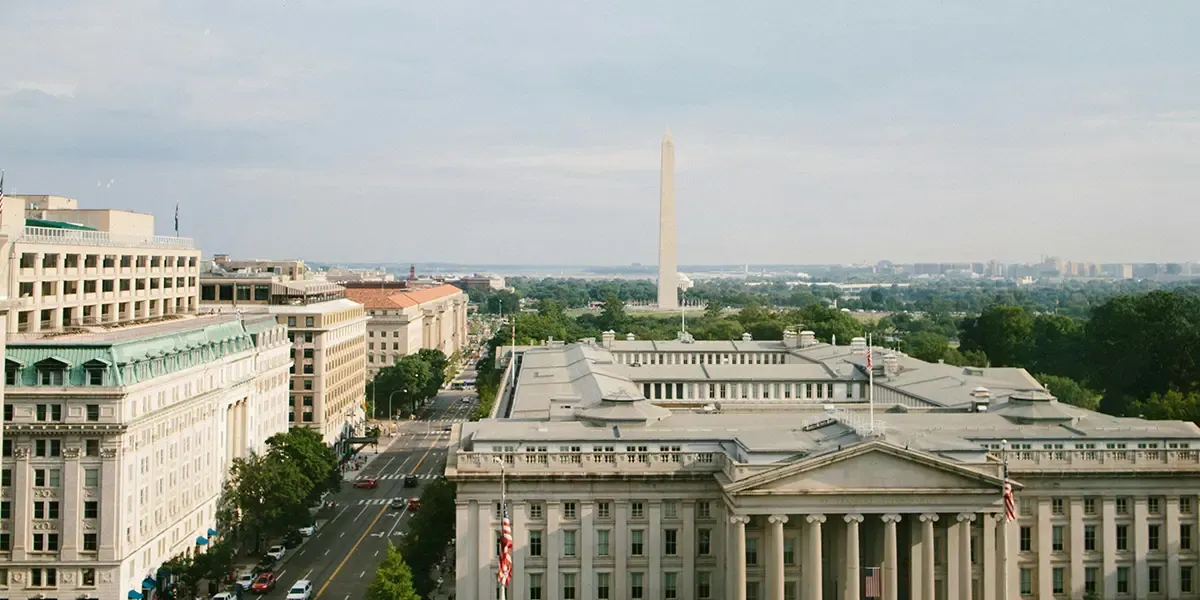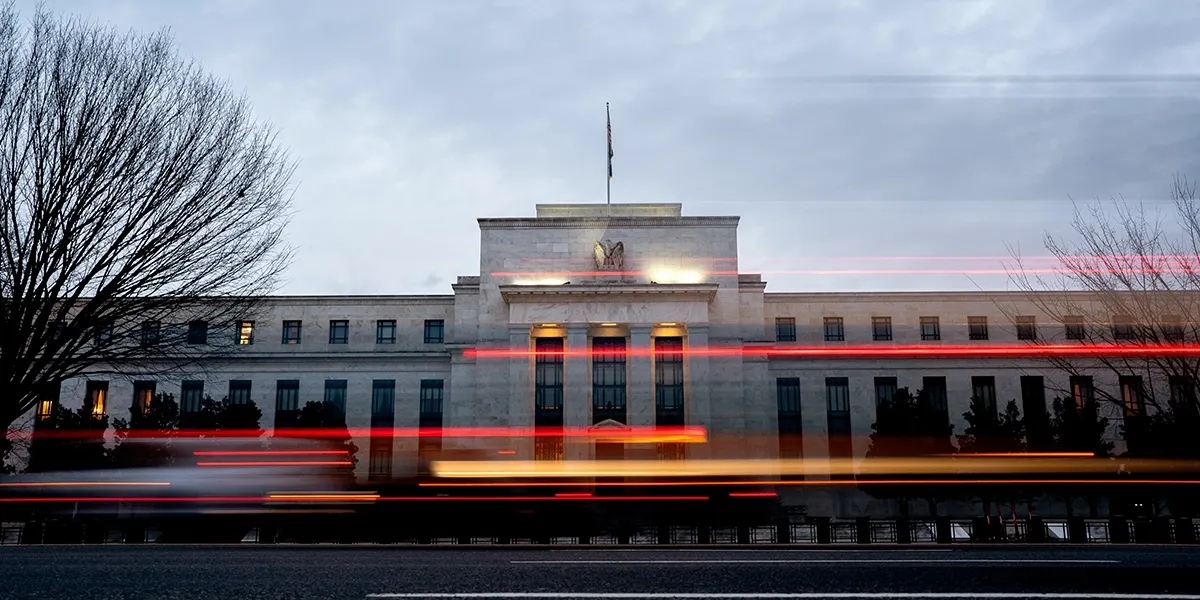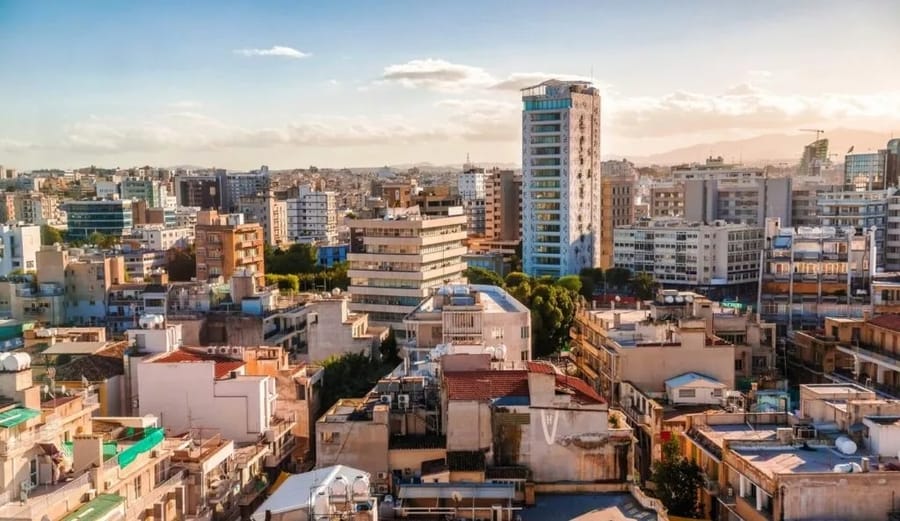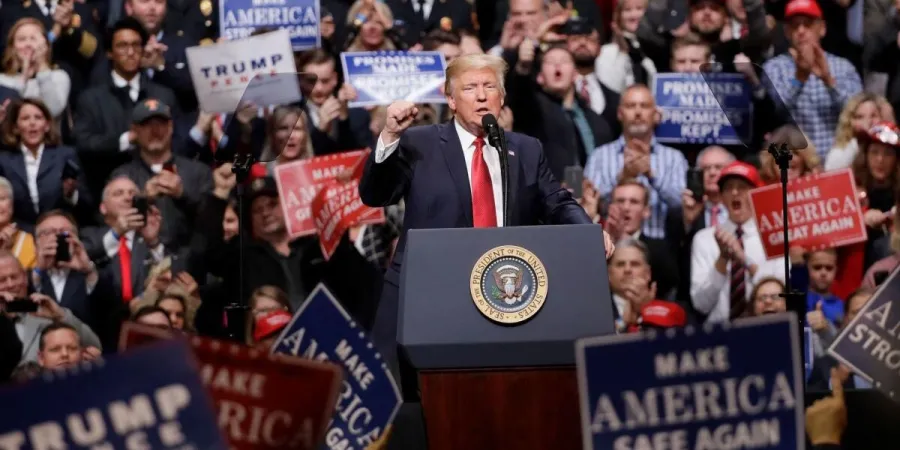When the U.S. Federal Reserve (Fed) changes its interest rate, the whole world feels it — not just Americans. US Federal Reserve policy changes affect global interest rates and property values in countries far from Washington. We’ll explain how this mechanism works, what happens to housing market affordability, and how the international real estate market and investors respond.
How Decisions in Washington Shape Real Estate Markets Worldwide
The Federal Reserve (or just the Fed) is like America’s main money boss. It ensures everything doesn’t fall apart: keeps inflation in check and helps the economy stay sane. When the Fed raises interest rates, the whole world gets nervous. Why? Let us explain.
- U.S. bonds are like a super-safe bank. When rates go up, that bank starts giving more money. Everyone wants to put their cash there. That means loans and mortgages in other countries also get more expensive — because money just got “more valuable.”
- The dollar also jumps up. It gets harder for foreign banks to borrow money cheaply. And investors think, “Why take risks? I’ll just go for the dollar!” — and send their money to the U.S. Again, stuff gets more expensive elsewhere.
- What do other central banks do? They say, “Whoa, the dollar’s rising, inflation’s creeping in!” and raise their rates too. So global mortgage rates go up, and buying a home gets trickier.

A Real Example: What Happened Recently
From 2022 to 2025, the Fed raised its key interest rate from 0.25% to 5.5%. In response, the European Central Bank (ECB) increased its rate to 4.5%, and the Bank of England raised it to 5.25%. This caused mortgage rates to rise worldwide.
What Does This Mean for Real Estate?
When interest rates go up, everything starts to change. Let’s go through the main points:
- Mortgages: Loans become more expensive, and many people can’t afford to buy property, especially in countries where the currency is tied to the dollar. This definitely makes life harder.
- Construction: Building new homes becomes more expensive, and because of that, there are fewer new projects on the market. What’s worse, many constructions are on hold.
- Investors: When loans are expensive, investors start to get nervous. Some delay their purchases, others look for cheaper markets or switch to commercial real estate.
How Rising Rates Impact Housing Affordability and Demand
When interest rates go up, loans get more expensive. This means:
- It's harder to get a mortgage.
- Monthly payments are higher.
- Fewer people can afford to buy a house.
Because of this, fewer people want to buy homes, especially in the more affordable range. For example, in 2021, the average rate for a 30-year mortgage was 3%. By early 2025, it went up to 6.8%. Here's what that looks like in real life:
See the difference! Nearly $700 more monthly — a serious budget burden. The result? Fewer young families and investors are willing to buy property. At the same time, the rental market is growing — those who can't buy are turning to rent.
Emerging Markets: A Double Hit
In countries with vulnerable currencies, such as Turkey or Egypt, Fed rate hikes hit on multiple levels:
- Investors pull out, moving their money to dollar-based assets.
- Local central banks are forced to raise their rates to protect the currency.
- Mortgage rates rise, often up to 20–30% annually.
In such conditions, buying property becomes nearly impossible for the average person. Construction slows down sharply, as financing becomes too expensive.
Property Type Also Matters

When mortgage rates rise, buying a home is challenging for many people. This is especially true for those looking for affordable housing. High monthly payments — not everyone can afford that. As a result, demand for housing starts to drop.
What about commercial real estate? The situation isn't great here either. Investors have become more cautious because loans are getting more expensive, and rental income no longer seems as attractive as it once was.
However, luxury real estate remains more stable, especially in tourist areas. Why? Because most buyers in this segment can afford to pay in cash, the mortgage rates don't matter as much. Therefore, the demand for expensive homes and apartments stays high, even with rising rates.
Investment Strategies in a Shifting Rate Environment
International investors quickly adapt their strategies to the changing landscape of real estate investment flows. In a high-interest-rate environment, investors usually:
- Move to markets with stable rental demand or fixed returns. For example, real estate in Cyprus or Portugal is still attractive because rents are rising.
- Use their funds more and reduce borrowing for property purchases.
- Invest in jurisdictions with tax incentives, such as Dubai, where no capital gains tax on property.
Even though interest rates increased in Cyprus, Limassol real estate deals rose by 12% in 2024. Most of the buyers were foreigners paying with cryptocurrency or cash.
Other Important Factors: Taxes, Loans, and Rules
We all know that interest rates can significantly affect the real estate market. But that's not the only factor impacting prices. Other factors can also affect how profitable it is to buy property.
Taxes

If taxes suddenly go up, like the ones for buying a second home, it can make the purchase less attractive. For example, the UK has already raised these taxes. And in Canada, they went even further and introduced a tax for foreign buyers. These changes definitely don't make investors happy.
Mortgages
What do you think happens to mortgage rates when the economy is unstable? Banks start tightening the screws and demand higher down payments, and the number of approved applications drops sharply. For instance, in the U.S., the approval rate for mortgages fell by 18% in 2023. Imagine the burden for those who wanted to buy a home!
Government Help
Some countries try to make it easier to buy a home. In Poland, a program helps young families with lower mortgage payments.
Taxes, loans, and government rules affect real estate valuation trends, property values, and foreign investors' interest.
Conclusion
Decisions by the U.S. Federal Reserve affect more than just Wall Street — they trigger a chain reaction worldwide. Through monetary policy transmission, global borrowing costs change everywhere. That means the real estate market and investor behavior also shift.
When interest rates go up, investors need to make smart choices. Here's what to do:
- Adjust your investment plans.
- Watch the central bank decisions.
- Look out for tax and rule changes. Property tax policy can raise the cost of real estate ownership or lower profits.
- Focus on safe places where people keep renting and returns are steady.
The market is tough in 2025, but there are still good chances. Stay informed and choose wisely.






